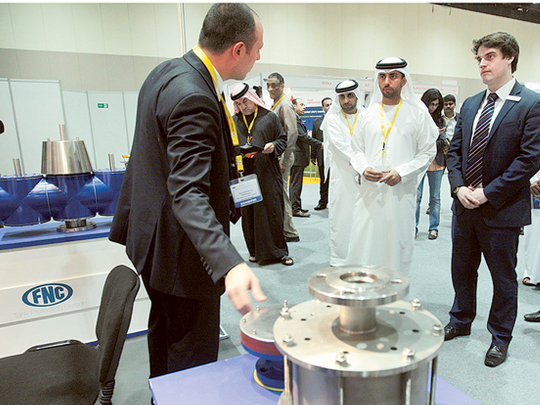
Abu Dhabi: UAE energy minister Mohammad Al Mazroui said the country will continue to invest and upgrade facilities despite the recent fall in oil prices.
“Many are saying because of what’s happening around us in terms of commodity prices companies, we should rethink the investment in infrastructure. I disagree with that,” said Al Mazroui while speaking at the Tank Storage Middle East conference in Abu Dhabi on Monday.
“For us here in the UAE, we are a major oil producer and our investments are intact to make sure that our stand as major oil producer stays in future.”
Oil prices have dropped nearly sixty per cent since June last year due to oversupply and weak demand.
Energy ministers from the Organisation of the Petroleum Exporting Countries (Opec) led by Saudi Arabia oil minister Ali Al Naimi have said they will not cut production to stop the slide of oil prices despite pressure from member countries like Iran and Venezuela.
Speaking on the other concerns of the industry, Al Mazroui said the safety of people and the environment is the most important priority for the country and is gradually becoming an international concern as well. “Those who are not adhering to safety of their employees and environment, I don’t think they will last in this competition,”
“We are committed. We are responsible and that’s why we will continue in our upgrade of facilities and will continue to adhere to best international safety standards.”
UAE is planning to increase the crude oil production capacity to 3.5 million barrels per day by 2017 from the present capacity of around 2.8 million barrels per day.
Industry experts at the conference said that failing prices is a major concern and has shaken many companies.
“This is a huge drop. It was quite unexpected,” said M Prabakaran, global head of terminals, Gulf Petrochem, UAE.
“Oil prices are volatile but there are some remedial measures for companies like hedging process, risk mitigation measures.”
He said people who have planned to make investments in oil related projects, they will try to watch and relook at it.
“This cannot continue for long because Opec countries budget is based on oil revenue. Kuwait has got 90 per cent budget supported by oil revenue. There will be a huge deficit in their budget and they cannot sustain.”
“There is a pressure on Saudi to cut down production and increase the prices. Saudi might have to yield to pressure from other Opec countries and probably there might be some restrictions on supply side to increase the prices.
“It may not reach $130 per barrel but might reach $60 or $65 which is the base level in the next quarter.”












